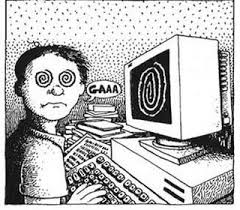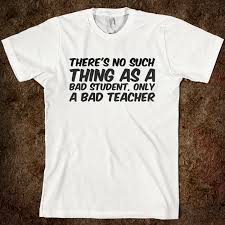
by Fitz | Apr 13, 2014 | Essays, Journal
Many men go fishing all of their lives
without knowing that it is not fish they are after
~Henry David Thoreau
When you need something done, find a busy person to help you get it done. My mother loved repeating that to me all the way to her dying day, but I have always wondered what people mean when they say they are “busy.” Does it mean they don’t really care about the “little things” that are keeping them from taking care of the “big things?”
Or do they think that life is intrinsically unfair and has singled out them out as deserving of more busy chores to attend to—or at least more than other people in their same socio-economic, educational, or professional status? Or do they simply feel they are above what they are being asked to do?
I am even feeling bad for myself: My day started early, and I was busy ALL day, and here I am late at night writing this self-aggrandizing missive to my students who no doubt “know” where this is heading: something about posting daily journal entries, reading chapter this and chapter that in whatever book we are overanalyzing, or to work harder at their collaborative projects, or to come up with profound insights about obscure 17th century ballads.
And of course, all of this is important, if not crucial, to their future successes in life…
And they have four or five other teachers, one or two parents, several coaches, and probably a tutor or two all telling them the same thing. As it is now, I am afraid that we are all trapped on flimsy boats in rough seas and sometimes mistake bailing as sailing. We are so busy staying afloat that we forget the purpose of our journeys. Or maybe no one has ever really explained the purpose of that journey in a convincing way. Why is it easier for me to tell my hard-working and studious students the reasons for Telemachus or Odysseus’s quest in life than it is to tell them what their individual quest is and can and should be?
The reality is that all of my students will be successful in life. Most of them already are (much more so than when I was a young teenager) so why keep beating the horse that is already winning the race?
It has to be that I don’t want them to repeat my failures, my oversights, my wasting of untold moments, and my utter disregard for the wisdom of the adults who tried to train and tame me. Or maybe I just want to keep my job as their teacher, and teachers, dagnubbit, must teach, and when I get tired, I simply make them do what I should have done. But to say this, I need to regret how I’ve lived, and aside from whatever hurts I brought to people through my myopic greed for life, I do not have any regrets. You see, I love where I am and what I do and how I live. I have this fear that if my life were any different—even in the smallest of details–I would not have the life I have today, which on my own weighted scale of success is an amazing accomplishment.
This afternoon when I was taking Tommy and his friend Henry to another in a string of Fitz family soccer games I listened in as two eleven year olds discussed the possibilities of other universes—that maybe our universe is a small bubble amidst a zillion other bubbles and that maybe there were other Tommy’s and Henry’s in those other universes doing different things—or maybe doing the same things with different results…
…or maybe the other universes were just dreams of universes.
That’s the one that caught my imagination, because I really want Tommy to feel like he can dream a universe into existence. It made me question and ponder for the remainder of the day how important it is to keep any dream alive and to give my own kids and students the strength and time and optimism to will that dream into a reality.
Fitting that into my weekly syllabus is not what I planned to do.
All I can say is I was there and now I’m here.
And where are you and what bubble are you in?

by Fitz | Apr 10, 2014 | Essays, Journal
It is not where you go. It is how you go.
~Fitz
Is there any value in coming to the page this late at night after three hours of singing in a pub, just because I said I would? I expect you to go to the empty page and pry tired and stubborn thoughts and lay them on the screen in some semblance of ordered inspiration, so I guess I should, too. [comma rule #10: commas with tag elements] My mind, body, soul and being needs and wants to sleep, but I am more stubborn than my thoughts, and I WILL make something out of nothing.
…five minutes go by…
Nothing.
So I start scouring through my day. What happened that was fun, interesting, real, or removed? My daughter, Kaleigh, and her friend, Brenna came to my 8th grade classes. That was fun—for me and them! In fact, [comma after introductory element] Brenna said she had no idea a school could be like Fenn. All the kids and teachers were fun and friendly, engaged and comfortable, polite and productive, so maybe—just maybe—Fenn is as really cool and special a place as we say it is.
Even if sometimes YOU don’t think so.
I had dinner at Maynard High School (Pipo’s school for next year and EJ and Margaret’s school this year). It was an international dinner with about twenty tables of wicked good and diverse food. A bunch of kids were playing in an impromptu band, and I hung out with my the other parents and we were thinking, “Yeah, this is a really special place…”
And it is because it is never where you go. It’s how you go. Some good many of you are heading to new places next year, and another good many of you will start your high school life at Fenn—which is really cool, too. It is not what you let it be. It is what you make it be.
In the same spirit, I need to come to the empty page and start a conversation with the blank screen in my Evernote notebook, for this page is my school, and it where I am taught about myself, and, ultimately, see myself.
The mind does not unblock itself; you must reach in and pull away the boulders and debris and create the path for even a few words to trickle onto the page.
And then sometimes I might have to stop the flood…
Even a t 12:01 AM

by Fitz | Apr 7, 2014 | Essays, Journal, Teaching
Who forgets to rinse his hair?
Me, I guess, for that was the start of my day. I smelled something like coconut oil on my way to school, and then I realized, dang, my hair is still pretty wet.
Wet with hair conditioner.
And then I get sot school all coconutty smelling and all these 8th grade kids are freaking out about some reading response I assigned to them, and I’m like, “I didn’t assign a reading response.”
I did. I messaged the 8th grade class telling them to write a reading response instead of my 9th grade class who was supposed to write a reading response. And now you’d think I should be reported to the lousy teacher bureau…
So, yeah, my day did not start out so hot, but not to worry: the mechanic just called and said my truck needs a new engine, so driving to work with smelly, oily hair is not such a big deal after all.
But, enough about me. How was your day?

by Fitz | Apr 6, 2014 | Essays, Journal, Teaching
Just because no one understands you,
it doesn’t mean you are an artist
~Bumper Sticker
I sometimes wonder why when you give a group of teenagers a video camera, the first impulse is to shoot something stupid. It’s as if there is some jackass switch connected to the “on button” when shooting video: Video on. Now let’s film something stupid and forgettable. “O’ look, I am being wicked funny…”
Or even better: “Look what this special effects does to my face and VoOiiice.”
And so teachers like me who have tried it before and know what “once burned twice shy” really means avoid doing it again. So go away video cameras and iPhones and iPads, and go open up your word processor and write, gubdummit, like we (the teachers) had to do!
Damn technology.
But there is another way. Because words are never uttered out of the dryness of death. Words are the children—the precious and precocious children—of potentially deep and subtle thoughts formed into sound, shape, and form, and that sound, shape, or form is only important in carrying that word–or spree of words—into the mind and heart and soul in the most direct, effective and practical way.
Only sometimes is that “way” the written word. Usually words are simply the waves of sound carried and shared within human interactions. Sometimes those waves spew out of the screens of tv’s, iPod, iPads, and any other device that captures reformats the original form of the word—and in the history of the world, that’s pretty cool.
And empowering.
Maybe I’m weird, but I’ve always wondered what Jesus might have said on the cross beyond what was remembered by the apostles who were there? What would an interview with Buddha really be like? What would a Socratic seminar look like if it were run by Socrates himself? What would Socrates look like? I could wonder all day….
So to cut this short, this is my plea to you: appreciate the opportunity you have. You live in a gilded age in a gilded palace, and you are being asked to step a bit higher on the podium of life by putting your best words into the best medium ever created by man—images and actions and words and sounds wedded together into something called “art,” for anything done well enough is an art.
I am going against the dictates of my experiences, and I am giving you video cameras and a rough outline of what I hope you will do, which is to create thoughtful and engaging reflections, summaries and analyses of different chapters of the books we are reading using videos as our way to engage the heart and minds of our audience.
It means figuring things out; it means learning new ways of doing things; it means avoiding excuses like cold mixed vegetables and to embrace change like a man running out of a burning building, and it means to start now by planning, preparing, and producing.
This is the idea. The details will follow in class on Monday.

by Fitz | Mar 4, 2014 | Essays, Journal, Teaching
To succeed, jump as quickly at opportunities
as you do at conclusions.
~Benjamin Franklin
Maybe we are born more to ignore than to listen. I understand too well how easy it is to ignore the blatherings of teachers. I was a master of it once myself, so why should I expect it to be any different for you? Very few of your lives will be diminished, nor will any irreparable harm befall those of you who choose to ignore my blathering rather than to listen. It’s your choice. You 8th graders are writing your epic poems that (hopefully) are trying to recreate the heroic cycle in new and original ways, and by and large it seems to be working: words are being wrought out of the ether of stale air and transformed into images and actions, thoughts and plots, and heroes and anti-heroes–and few of you seem to be struggling with the 250 line minimum. At this midpoint in the assignment, all I can ask is to keep at it. If you reach the 250 line minimum, and I can “see” that you are putting in a strong and consistent effort, but still have more to go, I will gladly give you an extension until after the break.
But you 9th graders. You are up against a hard deadline. Friday morning is the Poetry Slam where you
have to be ready to go–ready or not! By now you should have a good “body” of poems to choose from that will showcase you team and position your team as the best in the ninth grade. All of you will have two rounds of four poems each that will be judged by a picky group of judges–your teachers! If they like what they hear, you will make it into the final rounds, and at that point one of my class teams better win. I’d hate to have to listen to Mr. Farley for an entire year gloating how he beat the “poet’s class.”So for all of you–8th and 9th alike–work like mad. Transform opportunity into production. Make things better. Read everything I have posted about how to tell an epic story. Go back to your poems and get rid of the dull, mundane, oversold cliches and make your poems ring like hard steel on a cold day. Pay attention to form and structure, rhythm and flow, revising, proofreading, editing–do everything and anything that shows you give a damn.
These are not just words and games. They are all of you making stuff that will last longer than any of your lives. It’s eternity time.
And those opportunities don’t happen every day.
But blathering does.
by Fitz | Feb 26, 2014 | Essays, Journal, Teaching
It’s hard to make chicken salad out of chicken manure

Dirty hands are a good sign, so hopefully, you got some mental mud on your hands and created some content to work with today. To a starving man, any food is good food–unless it is pure manure. It is the same with poetry: if you have thoughts, ideas, directions, images and actions–really anything that implies “content”–you are a good part of the way towards making a poem out of a hash of words .
It may well be that you poem evolves away from your original intent, but that is a natural part of the creative process, but first you have to make sense of either the mess you created–or you have to make poetry out of dull and flavorless sentences. Either way it is the work of a poet–so, as much as possible, live as a poet.
I live in the world of real images and actions because I know that a series of images and actions creates an actual physical response in a reader as the brain renders those images using the motor or more primal functions of the brain. It is my job as a poet to force my readers to then have “think” about what those images and actions now mean, and so a “higher” function of the brain is brought into play, as in this short poem I wrote about a husband dealing with the loss of his wife in the 9/11 tragedy:
9/11/04
It is so quiet still
three years on,
wondering why
he didn’t hold her
longer,
knowing
one more kiss,
one more sip of coffee;
one more search
for the missing bookbag,
would have kept her
from rushing
to the train.
In this poem it is my title that sets the scene, which is followed by a few images and actions–and then a simple, but I think effective twist, that expresses regret at what happened, but that also hints that if only he had showed more love his wife would have missed the train that carried her to her death.
My main point here is that images and actions can be the foundation of any good poem, and if you are stuck and in a “poetic rut,” you can climb out by immersing yourself in recreating a scene using images and actions–nouns and verbs–to describe a situation.
And then all you gots to do is add a twist that makes it little more out the something that came before it.







